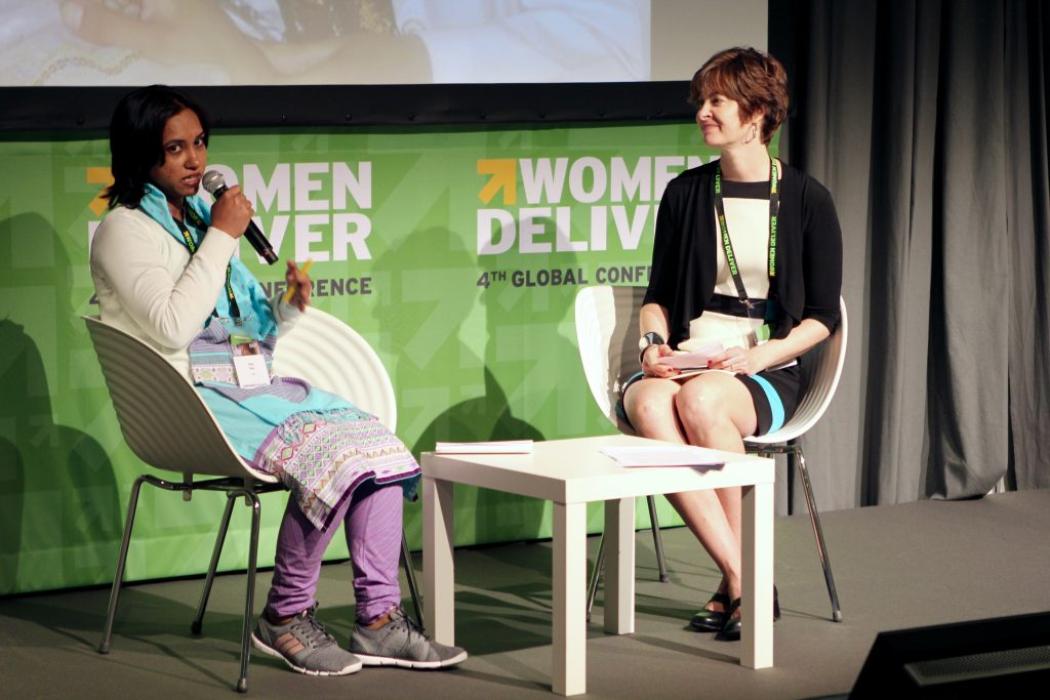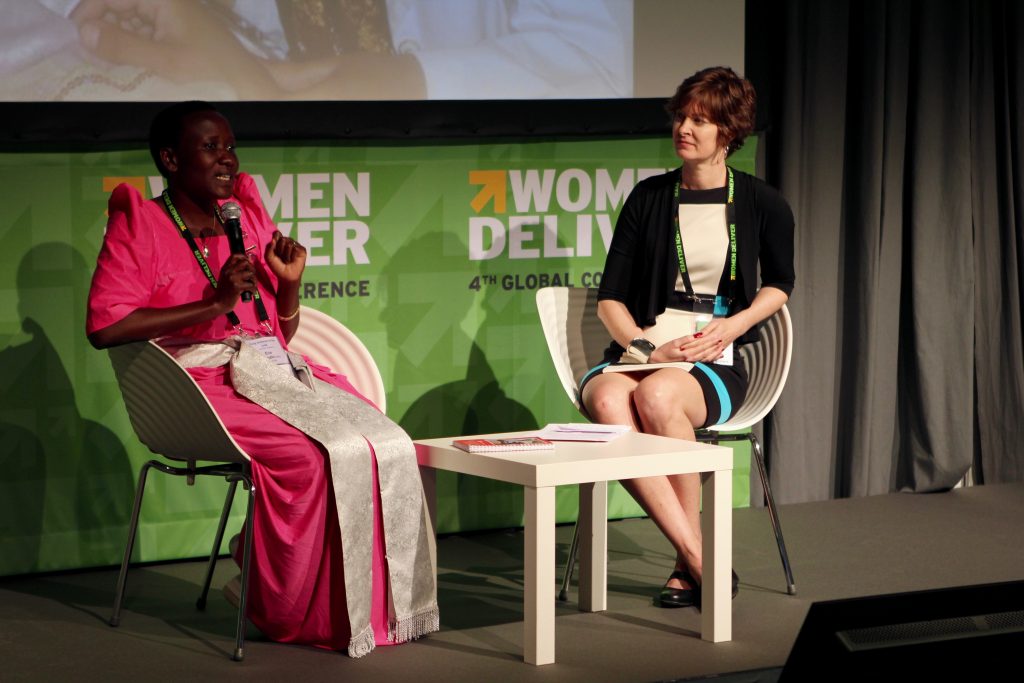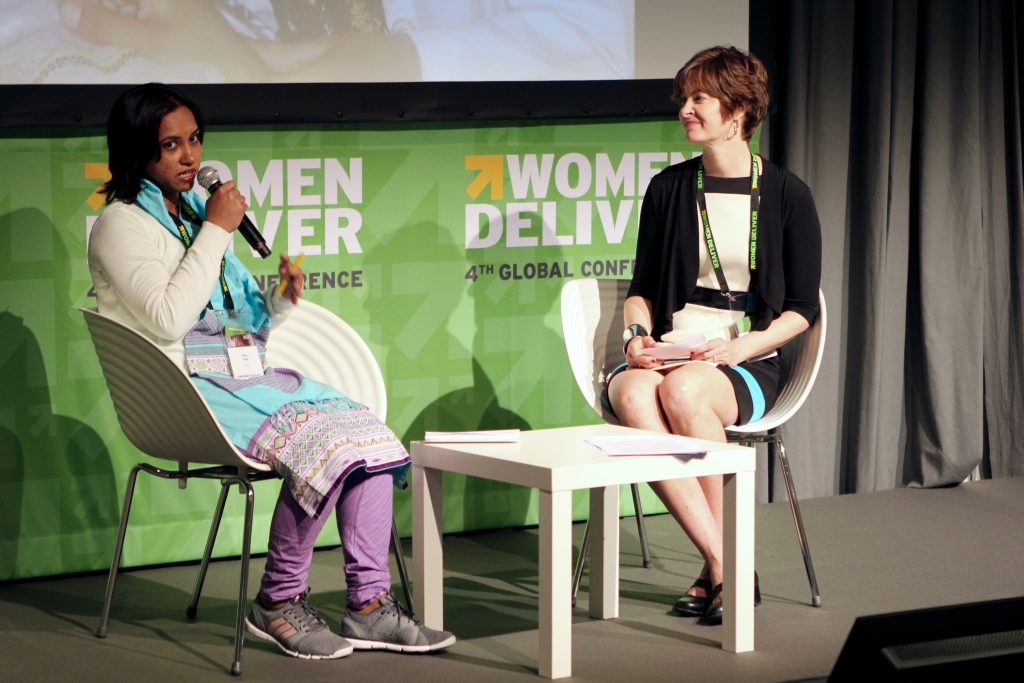Reflections on Women Deliver: From Stories to Action

By Claire Hitchcock, GSK
Eva looked beautiful in a long pink dress, tied with a white sash. But her serene smile belied hardship. Speaking at a Frontline Health Workers Coalition-led side session at the Women Deliver conference in Copenhagen, Eva described her difficult and determined journey to become a midwife in Uganda.

Eva Nangalo, a midwife from Nakaseke Hospital in central Uganda (left), speaks to Frontline Health Workers Coalition Chair Julia Bluestone of Jhpiego (right) at FHWC’s Women Deliver side session. Courtesy of Cole Bingham, Jhpiego.
Now a fully-fledged midwife, she shares what little money she has with the mothers. That explains why her closely cropped hair is not braided. The health facilities are poor too, and Eva has had to deliver babies by the light of a mobile phone when the power goes out. But for Eva, the challenges are worth it: mothers love her because she helps them deliver.
The three-day summit in Denmark’s capital – which focused on women’s health and economic empowerment – was brimming with powerful tales like Eva’s. These stories all demonstrate why health workers count, and why it’s vital to step up investment in these frontline staff and the systems they work within. Not only will this benefit health workers the families they care for, but communities and businesses also stand to gain from healthier societies.
If the energetic discussions in Copenhagen are anything to go by, there are signs of increasing investment in primary health systems. In Ethiopia, more than 38,000 health extension workers are supporting families and communities to improve their health. This fleet of health workers focus on vital frontline services such as malaria prevention and control, family planning, and newborn care.
In Burkina Faso, the government has recently removed user fees, meaning that women and children under-5 can now get free health services. Valerie, a manager with Save the Children in Burkina, campaigned with advocates for women and children’s health for the government to remove user fees. The determination of Valerie and her colleagues is already having a real impact on mums and children.
In the remote, flood-prone Sunamganj area of Bangladesh, CARE International is working with local authorities and communities to train up a cadre of skilled birth attendants. This is funded through GSK’s commitment to reinvest 20% of our profits from the least developed countries back into strengthening those regions’ health systems. CARE has supported the training of more than 150 skilled birth attendants in Sunamganj, who have managed almost 9,000 deliveries. Fewer women need face childbirth alone.
Rina, a program manager with CARE Bangladesh, told Women Deliver that she was passionate about improving education for women and girls so that even more of them can go on to be health workers. We want that too. That’s why we’re expanding our health worker training programme in Sunamganj and also working in urban areas. Along with CARE and our two other partners – Amref Health Africa and Save the Children – GSK has already helped train more than 40,000 health workers across 35 countries. By the end of 2017, we hope that number will have risen to more than 70,000.

Dr. Rina Rani Paul of CARE Bangladesh (left) speaks to FHWC Chair Julia Bluestone of Jhpiego at the Coalition’s Women Deliver side session. Courtesy of Cole Bingham, Jhpiego.
Stories of women like Rina, Eva, and Valerie inspire a renewed sense of purpose. Working in partnerships across business, government and civil society to swell the ranks of frontline health workers is not always straightforward. But it is necessary. Women and girls are counting on us to take action so that they can access the health services they need to survive and thrive.
